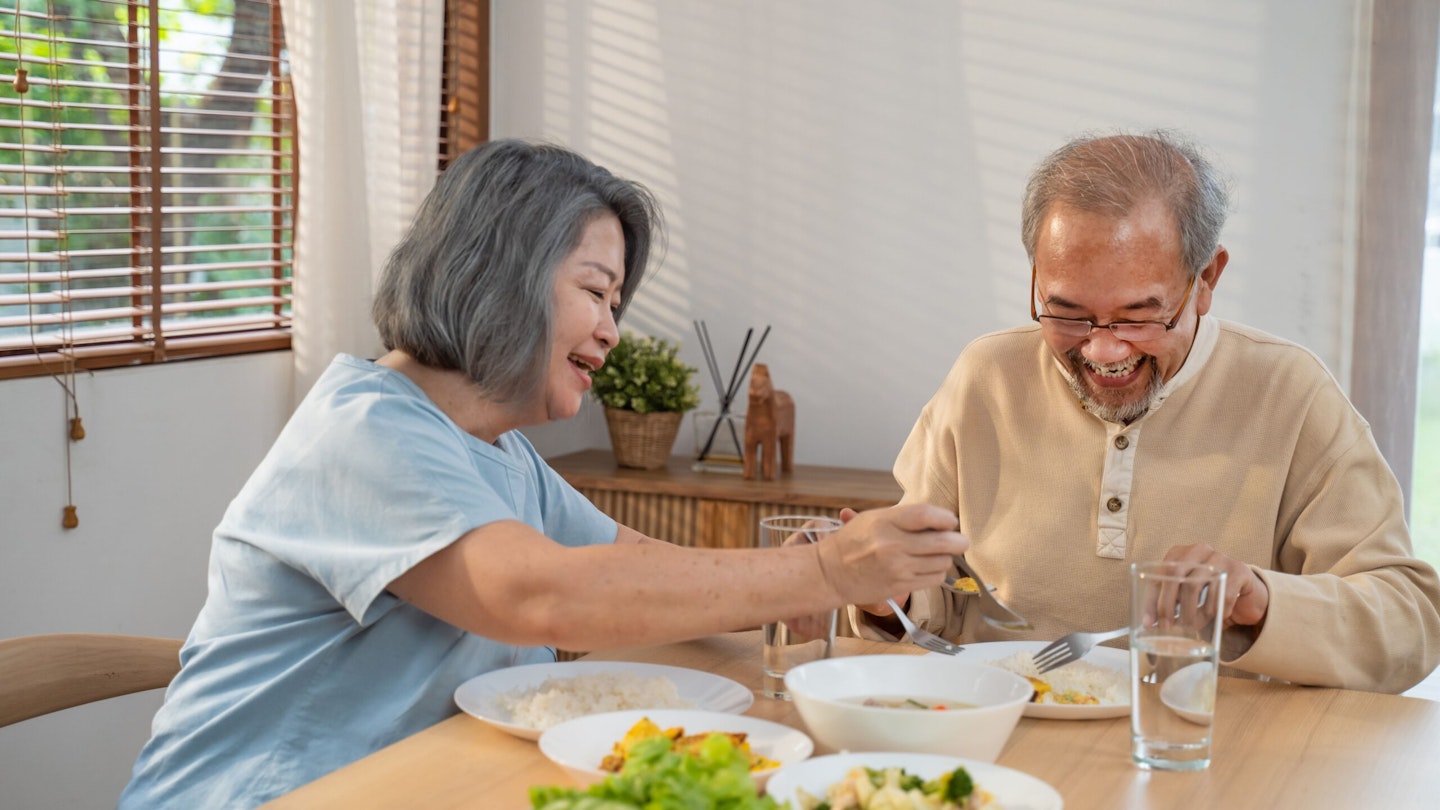We talk to Dr Jane Pritchard on how to communicate effectively
According to a report conducted by the Alzheimer’s Society, there are currently estimated to be 982,000 people living with dementia in the UK, projected to rise to 1.4 million in 2040.
With September marking World Alzheimer’s Month, it’s an important time to raise awareness of the stigma surrounding the disease, but also to ensure family members across the UK feel supported and have the information they need to support their loved ones.
Alzheimer’s disease is a specific type of dementia. It’s a progressive condition, with symptoms such as memory loss and a change in cognition developing slowly over a number of years, becoming more severe as time goes on.
In this article, Dr Jane Pritchard, Admiral Nurse at live-in care provider The Good Care Group, will explore the best ways to communicate with loved ones with dementia and how this might change as the condition progresses.
How to talk to your loved one

“In the initial stages of Alzheimer’s, individuals will retain many of their long-term memories,” Dr Pritchard explains. “Instead of focusing on what someone has forgotten, it’s important to instead focus on what they remember. Every person is different and has unique memories, so it’s important that loved ones highlight people’s strengths and individuality through these retained memories.
“Family members could consider creating a book (often called a ‘life story’ book) including photos of special moments in a person’s life, under different chapter headings such as “relationships”, “children” or “holidays.” This helps the person connect with the past, and often provides conversation and comfort.”
As well as visual aids to help with memory, Dr Pritchard also suggests some more tactile approaches:
“Using a rummage box can also help an individual tap into memories from the past, using tactile cues such as wooden clothes pegs, soft items that the person can feel, and perhaps postcards of places they have visited. It can also act as a communication tool, providing conversation ideas.”
It can become more difficult to communicate with a loved one as their condition progresses, but altering your style, and prioritising other methods of communication can help, as Dr Pritchard explains:
“As a person’s condition progresses, using non-verbal communication such as gestures, facial expressions and touch become increasingly important. Smiling, holding their hand and making eye contact are all important communication techniques that can reassure and comfort someone.
When communicating with someone with dementia it is also important to not correct the person or dismiss their reality if it is not the same as ours. A person may say for example that they have not seen a loved one in some time, or that their parents are still alive.
Correcting the person and trying to bring them to our reality when their dementia is far advanced is rarely successful and tends to make people feel upset or angry and can lead to arguments. Instead validate the person’s emotions, saying something like “it does seem like a while doesn’t it.” Family members can also consider looking at photographs of loved ones together, acknowledging their feelings of wanting to see them, understanding that a request to see a loved one might really be a request for comfort which could be met in other ways.”
Activities to consider for a loved one with Alzheimer’s

“In the early stages, loved ones will still have capacity to engage in familiar activities, although they may begin to experience mild memory loss and difficulty with more complex tasks,” Dr Pritchard says.
“Encouraging people living with Alzheimer’s to take part in regular walks or gentle exercise can help them to maintain mobility and boost physical health, as well as supporting their mental wellbeing. Social activities are also important and can help to stimulate the brain and meet social needs that the person has, to connect with others and share experiences.
Family members should involve an individual in the decision making around which activities they want to take up to help maintain their independence. This could be volunteering with a local community group, taking part in an art class or meeting friends at a café.”
Again, as the condition advances, you may need to alter the activities you do with your loved one, but there’s still so many options to try:
“As Alzheimer’s progresses, people may require more assistance and support. Family carers may want to consider shifting to simpler activities including card and board games such as jigsaw puzzles with large pieces, or jumbo bingo cards. Arts and craftscan also encourage creativity and help to maintain wellbeing through a calm environment.
In late stages, sensory activities such as gentle hand massages and playing familiar, soothing music can provide comfort and sustain a connection between loved ones and individuals, while encouraging reminiscence. Different smells, textures, colours, and tastes will also help reach the person and engage them.”
While dining

Regular exercise and movement are important when caring for a loved one with Alzheimer’s, and so too is taking care of their nutrition, especially if this has become something the person is unable to do reliably for themselves.
“While appetite can decrease as Alzheimer’s progresses, the need for nutrients increases, so it is important that communication at mealtimes supports people to sustain healthy habits as their condition progresses,” Dr Pritchard says.
“Mealtimes are also important in that they create moments of social connection, which can stimulate memories and provide a source of enjoyment.
In the early stages, family members should ask closed-ended questions or questions that can be answered with a simple yes or no statement in relation to food choices. For example, instead of asking, “What do you want for dinner tomorrow?” try saying, “We’ve got one of your favourite meals tomorrow, shepherd’s pie, does that sound good, or would you prefer pasta?”. This question is narrower and gives the person something clear to focus on.
As a person’s Alzheimer’s reaches later stages, family members should use short, clear sentences and avoid complex or abstract concepts. Family carers should instead focus on concrete topics related to the environment, such as the food being served or their favourite dish.
Simplicity should be prioritised. Loved ones can consider narrating actions such as, “Here’s your favourite pie” to keep them engaged and focused.
It’s also important to limit distractions – try and maintain a quiet and comfortable environment, limiting noise such as TV, radio, or any other distracting objects.”
Further support
While there can be lots of positives about caring for a person with Alzheimer’s, it can also be a very hard time.
As a family member and/or care giver, it can be difficult to watch a loved one’s condition progressing. At times upsetting, frustrating, isolating and difficult, it’s important to look after yourself as well, so you can better support the person you love.
Make sure to access support if needed. The Alzheimer’s Society has many valuable resources, including a helpline. The NHS also offer information on how to get a care plan in place and options for care support. You can also contact a care provider such as The Good Care Group to find out what support might be available. Finally, Age UK have a lot of relevant information as well as online support.
Dr Jane Pritchard is Admiral Nurse at The Good Care Group.
Becky Fuller is a senior digital writer for Yours.co.uk. She is also a fully qualified personal trainer and strength coach, specialising in fitness and wellbeing for over 50s. Prior to joining Yours, Becky was a fitness writer for Saga, and a freelance entertainment and theatre journalist. Becky is passionate about helping people to move well and discover the many benefits of strength training.
